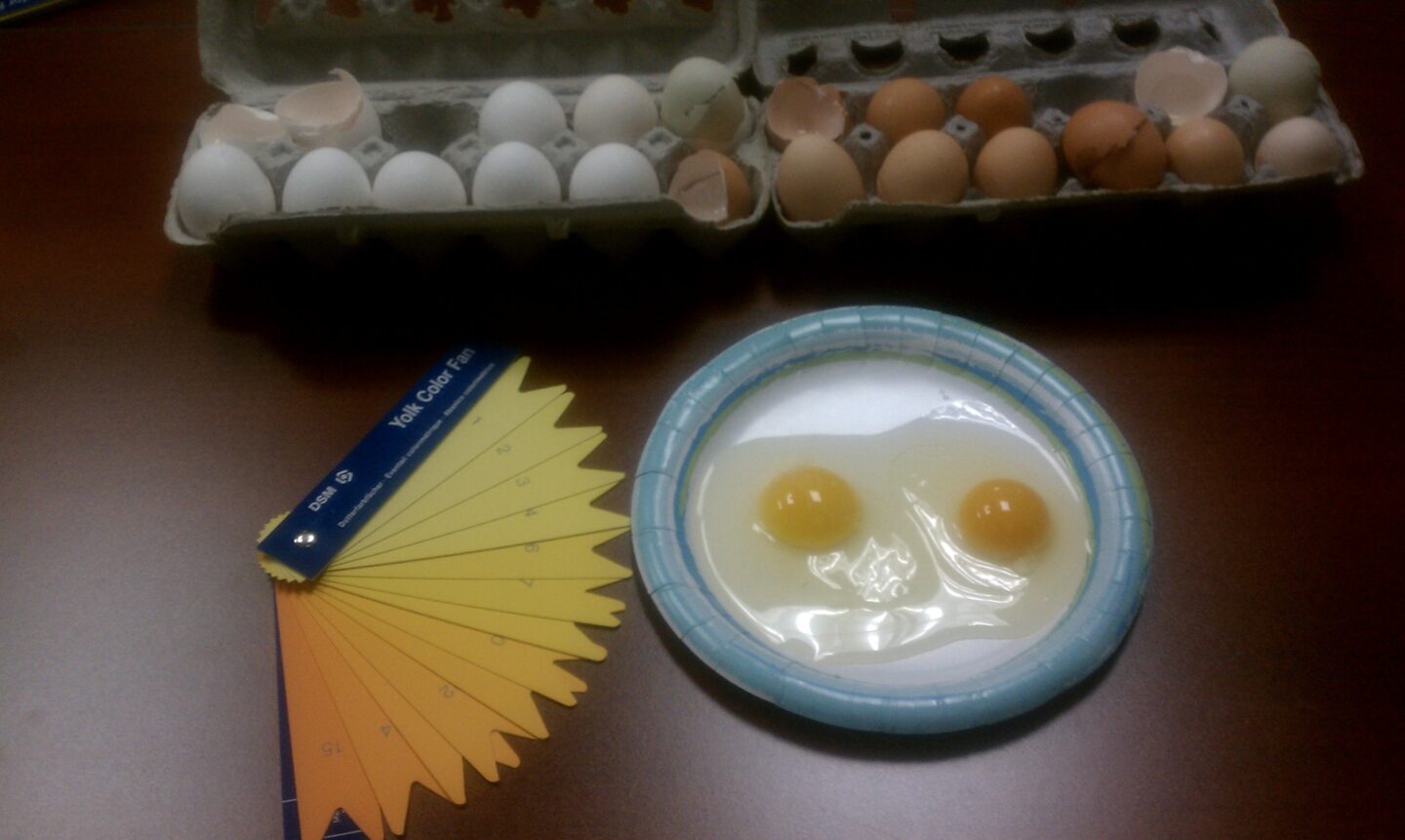6 Egg Myths Solved!

With so many variations and slight differences that affect our eggs, it’s easy to see how myths around what is good and bad in an egg can pop up. We’ve identified some common myths and explained the real story here:
Do Roosters = Eggs?
This is one of the most common questions and myths that exist in the poultry world. Simply put, the answer is no. You do not need a rooster to have eggs – your hen will lay eggs whether or not a rooster is present. However, if you want to have eggs that can be hatched, you will need a rooster to make the eggs fertile.
Shell color
Brown eggs are nutritionally equivalent to other eggs of different colors. The breed of the chicken will primarily determine egg color. Often, the color of the earlobe of the chicken will indicate the color of her eggs – a red earlobe typically means a brown egg while a white ear lobe means the hen will lay a white egg. Remember, to keep eggshells nice and strong, be sure to always provide oyster shell free choice in a separate container for birds 16 weeks and older.
Yolk color
Yolk color does not affect nutritional value. Vibrant yolk color comes from outdoor plants consumed and/or quality layer feeds that contain marigold extract or other cartenoids. Home-produced eggs have yolks that are bright yellow to deep orange in color and an albumen (egg white) that stands up a bit in the frying pan. Grocery store eggs will often have pale yolks and runny albumen.
Fertilized vs. Non Fertilized
Fertilization of the egg does not affect the nutritional value. Some people will claim that a fertilized egg tastes slightly different than a non-fertilized egg, however others cannot distinguish between the two.
Blood Spots
Blood spots are not harmful and the egg can still be consumed. Blood spots can indicate a rupture in some of the tiny blood vessels within the egg itself. This is seen more frequently in older or very young hens and can also be hereditary.
Egg Size
Lastly, don’t forget to pay attention to the quantity of feed your hens are getting. Low body weight will most likely equate to a drop in egg size. The average laying hen should be consuming approximately 1.5 lbs. of feed per week. By keeping hens well-fed and happy, they’ll keep producing nutritious eggs just as nature intended.
